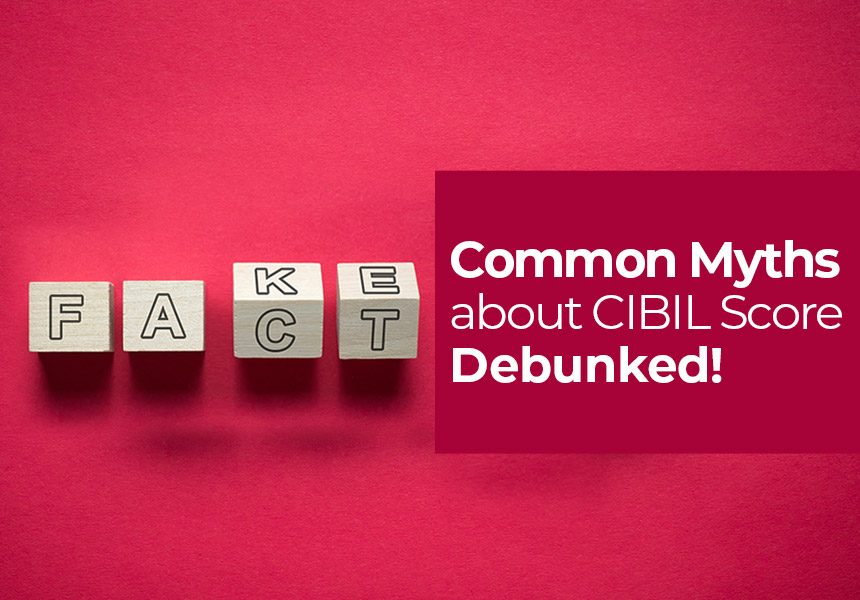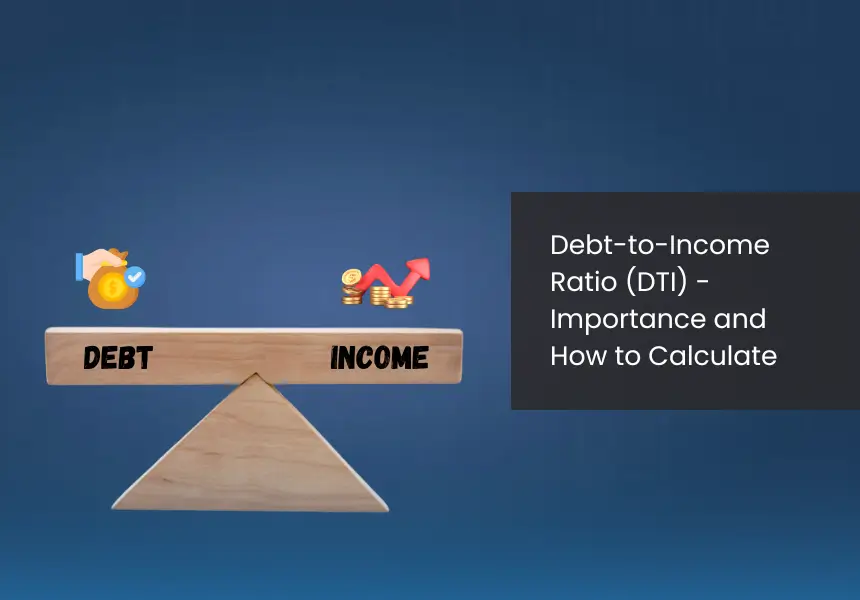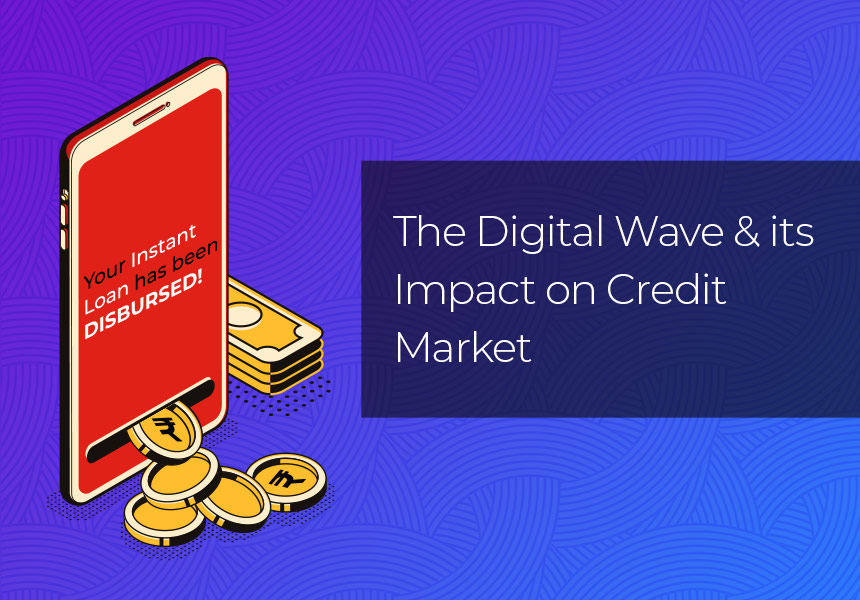
What is CIBIL all about?
CIBIL (Credit Information Bureau of India Limited) is one of the most trusted credit information and rating companies. It is in fact, the first Credit Information Company of India. CIBIL collects monthly reports from financial institutions and banks to cull out loan and credit card payment information about individuals. The report generated using all these details is also known as the Credit Information Report (CIR). The CIR helps generate a Credit Score; a unit used to evaluate an individual’s credit worthiness by loan providers.
The objective of CIBIL is to have an unambiguous and transparent overview of financial records- that would help both the lenders (loan providers) and the borrowers. With the CIBIL Score, a borrower has a clear understanding of his/her credit score and the factors impacting it. As per the Reserve Bank of India’s guidelines, CIBIL reports are generated on a monthly basis and used primarily by lenders to approve or reject a loan application. Today, even employers (especially those in the financial services space) consider a candidate’s CIBIL score, among other things, while making the employment decision because this score strongly correlates to how he/she will handle customer money.
What is a CIBIL Score?
CIBIL Score is a three-digit number that is calculated by the bureau, and it defines your credit history. Loan providers, credit card companies, and banks rely heavily on this score when deciding on whether to extend a loan or credit card. It indicates the credit risk or probability of defaulting that a borrower carries. The score ranges from 300–900; a score of 600+ is considered decent by most lenders, but this cut-off varies from one lender to another. Higher the CIBIL score, higher is the probability of getting a loan at a reasonable rate of interest.
How is the CIBIL Score calculated?
Considering that the CIBIL score is critical for loan approval and clearly determines the credit worthiness of a borrower, it is important to understand how it is calculated. A lot of advanced analytics and proprietary algorithms are involved in the calculation of the CIBIL score and being aware of the elements that go into this calculation is helpful. These include: how much credit you are using up (e.g., credit utilization on your credit card), delinquency or late payment (repayment behavior), and types of credit you have availed (only credit cards or a balanced mix of credit lines).
This brings us to the important aspect of components that define the credit score.
What are the key components of a Credit Score Report?
Past Performance or Payment History:
This aspect has the most impact on the calculation of your credit score. It shows whether you are a high-, medium-, or low-risk borrower, based on how you have managed your debt obligations in the past. Credit and rating companies like CIBIL use the payment history on your credit card, loan, mortgage, and other debts to classify your risk level.
Naturally, regular payments translate into a better score. The obvious logic is that when you make your payments on time on a consistent basis, your credit score remains healthy. Conversely, skipping/delaying payments reduces the score.
Read About: How to Manage your Loan Payments
Credit Utilization or Credit Exposure:
As a borrower, you are eligible to a certain amount of credit across different channels. Credit utilization or exposure is defined as the amount of credit used out of the amount of credit made available to you.
For instance, if your credit card allows you ₹2,00,000 and you use ₹1,00,000 worth of credit, then your credit utilization will be 50% of your available credit limit.
A higher credit utilization impacts your credit score inversely since it shows that you are living beyond your means. So, the idea is to use your credit cards at 30% or less of credit utilization and clear the payments in time to maintain a decent score.
Credit Line or Duration:
Credit lines are basically unsecured channels of getting loans for personal requirements or emergencies; hence you don’t need collaterals and you can draw as much money as you require within a given time period and up to a certain amount.
When you apply for a credit line, it appears as a new account in your reports. So, when you keep adding newer lines of credit, it indicates lack of financial planning and adds a shadow on your intent to pay back on older lines. As a result, the credit score gets negatively impacted.
If credit lines are paid back in good time and no defaults are recorded; the credit score improves.
Types of Credit:
Whether you are using a single source of credit (e.g., one credit card) or balancing it out between credit cards and loans/credit lines will factor into your credit score. It is favorable to opt for a combination of credit products i.e., credit cards, secured and unsecured loans. The right mix of credit and proper servicing of the loan is a sign of a healthy credit profile.
Other Factors:
These include your recent credit behavior, number of enquiries for new credit (each time you apply for a loan or credit card, there is an inquiry into your credit history), etc. So, getting new credit cards just for the points or offers may not be a great idea.
Checking your credit score does not count as an enquiry; in fact, it is advisable to check your score at regular intervals to remain on top of your financial well-being.
Moving on, let’s debunk the common myths that surround the CIBIL score and understand it with greater clarity.
Learn More in our: Definitive Guide to Factors Affecting CIBIL Score
9 Common Myths About CIBIL
1. CIBIL publishes a Defaulter’s List. CIBIL approves/rejects loans
No, it doesn’t. CIBIL does not maintain or publish the loan defaulters’ list at any time. CIBIL has the credit history of any borrower who has opted/enquired for loans or applied for a credit card. The credit history is collated, and based on algorithms, the credit score is calculated. CIBIL also does not approve/reject a loan or credit card application; that prerogative is of the loan provider; to evaluate the credit worthiness based on the credit score along with other aspects.
2. CIBIL can alter the credit reports of individuals
CIBIL cannot make changes in anyone’s credit reports since these records are supplied by banks or financial institutes that maintain the credit history information of the borrowers. The records can be updated, and the process of making valid changes in the reports can be facilitated by CIBIL, but they cannot make any changes at their will.
3. CIBIL Score is the ONLY factor that decides whether your personal loan will be approved
CIBIL score is undoubtedly crucial for this decision; however, it is not the only deciding factor. Lenders base their decision on several aspects, including the applicant’s income or earning potential.
Read more about : Personal Loan Rejection Reasons
4. No Credit History is the BEST
Not really. If you are a first-time borrower, you will obviously have no credit history or score. But, a lot of loan providers prefer a clean credit history and a responsible credit score rather than no records at all. In such cases, the lender may hesitate in extending a loan. The credit score is a clear indication of a borrower’s financial behavior and provides a guideline to the loan provider on what to expect.
5. A low CIBIL score is forever
This is not true at all. The CIBIL score is calculated based on a borrower’s credit obligations and payment (rather, repayment) behavior. So, even if you’ve been defaulting on payments or falling behind on mortgage payments, there’s always a way to bump up your credit score.
Clean up your act and start making your payments on time consistently, your credit score will start improving too! CIBIL scores are updated regularly, and banks or financial institutes call for the CIBIL report only when a loan or credit card is applied for; so, they receive the latest report.
Read More About : How to Fix Errors in your CIBIL Report
6. CIBIL Score depends on your assets or annual earnings
Not really! CIBIL scores reflect a person’s previous financial transactions with respect to credit. Mr. X earns < ₹5,00,000 per year but has an impeccable CIBIL score because he makes his credit card payments on time and has never defaulted on a payment. However, Mr. Y earns > ₹10,00,000 annually, but has a low CIBIL score because he frequently misses his home loan EMI payment dates. Also, it is possible that someone who earns > ₹15,00,000 a year has no credit score simply because he/she has never borrowed money. So, your spending and credit-repayment actions are what dictate your credit score; your assets or annual earnings have no direct impact on your CIBIL score.
7. Checking or disputing your credit report impacts the CIBIL Score
It is a good practice to regularly check your credit report; this helps you know where you stand and lets you spot any discrepancies that you may need to report and get rectified. Neither of these actions impact your score.
However, in case of any anomalies, such as wrong entries, there may be changes made to your report, and this may alter your score, but that is by way of correction only.
However, multiple credit-related enquiries could impact your credit score. For example, if you apply for loans from multiple lenders, all of them will inquire about your credit reports. These multiple inquiries could lower your score because they indicate that you desperately need the money.
8. Paying off debts increases your credit score
Well, yes and no. Paying off debts is a clever idea at any time since it indicates that you have your finances under control. However, this is not going to spike up your credit score because the score considers all your other transactions too. Your lender however, will have a look at all transactions before taking a decision on your credit worthiness.
9. Cancel your credit card for a better score
This is untrue. When you close a loan (credit line), the credit score improves but this may not be true for credit cards; canceling/closing a credit card has little/no impact on your credit score.
Read more about Clear Credit Card Dues
It is important to note that CIBIL reports and CIBIL scores not only help banks and other loan providers to know an applicant’s credit worthiness, but also aids individuals like you and me to maintain financial health by keeping a keen eye on the score.








